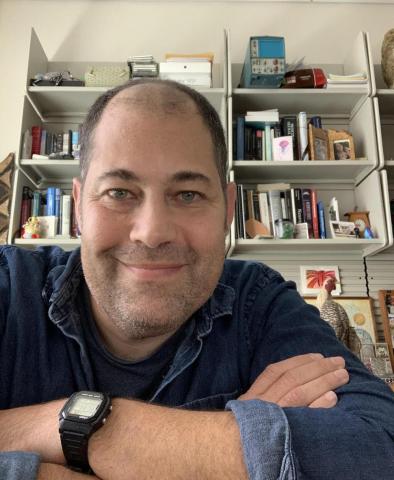Carney neuroscientist named inspiring Hispanic/Latinx scientist

Cell Press has named Carlos Aizenman, professor of neuroscience at Brown University, one of 100 inspiring Hispanic/Latinx scientists in America.
The Cell Press list was compiled for National Hispanic Heritage Month, and it is based on scholarly achievements, mentoring excellence and commitment to diversity, equity and inclusion.
Aizenman is an advocate of equitable access to the sciences, in particular for students from groups that have been traditionally excluded from these fields. His goal, he said, is to continue to foster an environment where everyone feels included in STEM fields.
“Constant advocacy is important, and I’m always looking for areas where we can promote inclusion and equity in my field and in academia in general,” said Aizenman, who is affiliated with the Carney Institute for Brain Science. “This might involve working with colleagues to learn to create more inclusive environments in their labs, classrooms and departments, or to examine promotion criteria to ensure these criteria are equitable and recognize structural barriers.”
“This might also involve creating inclusive course syllabi, fostering conversations around topics of diversity, equity and inclusion, and assembling programs to ensure students who are historically excluded from STEM fields have the same opportunities as their peers,” Aizenman added.
After joining Brown in 2004, Aizenman helped launch the University’s Post-baccalaureate Research Education (PREP) Program, a NIH-funded internship program that addresses the critical transition into doctoral training programs in biomedical and behavioral sciences by improving participants’ academic credentials, enhancing research skills and building participants’ confidence to successfully complete a Ph.D. program. Fifteen students have participated in the PREP program since its inception in 2017. Aizenman is the director of the program and the co-principal investigator of the NIH grant that funds the program.
Scientifically, Aizenman works on neurodevelopmental disorders and early development of sensory systems. His research focuses on how early life experience shapes brain circuits in health and disease. The Aizenman Lab uses a combination of electrophysiology, molecular biology, behavior and imaging to understand how a small perturbation, such as alteration in expression of a single gene or exposure to an environmental toxin, can lead to a miswired brain. These techniques help the researchers in Aizenman’s lab understand the biological underpinnings of neurodevelopmental disorders, including Autism and childhood epilepsy.
“Neuroscience is a fascinating field. It helps us understand who we are and how we do what we do,” Aizenman said. “You are not just learning about the brain and nervous system, you are also learning to apply basic knowledge from so many fields — biology, physics, chemistry, psychology, math, etc. — to a very complex problem.”



